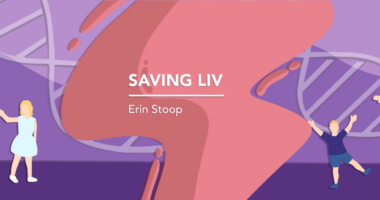Our Miracle Is Already Here

While we may not be talking about Bruno, it’s no secret that Disney’s latest animated offering, “Encanto,” is on the tip of many tongues, especially in families with young children who are captivated by Lin-Manuel Miranda’s songs. Like many parents of young children right now, my car is filled daily with the music of “Encanto,” so I can’t help but reflect on it as it plays over and over (and over!) again. (Note: slight spoilers ahead!)
“Encanto’s” plot revolves around the Madrigal family and the miracle they received, which they continue to curate for the betterment of their community. The miracle is often presented as the powers or gifts the Madrigal children gain when they come of age, but the resolution of the movie is the realization that the miracle is each member of the family, not their magical gifts.
Many are finding relevance in multiple ways from “Encanto’s” tale and its messaging regarding family trauma, acceptance, and inclusion. As we head into Rare Disease Day on Feb. 28, I find this messaging especially relevant to the rare disease community. (And I’m not the only one.)
I am often reminded of how large our community is. “Rare” seems to connote being unique, which can sometimes seem isolating. But the reality is that with over 7,000 documented rare diseases grouped together, the number of rare disease patients jumps to about 300 million people globally. And most of them, along with their families, have been looking for their own “miracle” for a long time.
In an able-bodied world where worth is often equated with ability, it’s hard to really determine what that miracle actually is. Is it a cure? Is it a treatment? Is it quality of life? Is it acceptance and inclusion?
For our family, the reality is that our 11-year-old son Will’s miracle has already happened (although if another one wants to come along, we certainly won’t say no). Will is here. He was conceived, he was born, he is living, and we get the amazing experience of being in his life.
Sanfilippo syndrome begins the moment of conception. Will was created without the genetic blueprint to make the alpha-N-acetylglucosaminidase enzyme, and yet he survived. Every day, he has fought the odds with a physical body that’s missing a key ingredient.
Has this missing genetic code affected his life? Of course. A degenerative disease is still a degenerative disease. But as “Encanto’s” song lyrics tell us: “The miracle is not some magic that you’ve got/ The miracle is you, not some gift, just you.”
Will’s worth is not defined by what he can or can’t do, or what genetic component he has or doesn’t have. “Encanto’s” messaging highlights the inherent personhood of each individual. Regardless of gifts or abilities, all people are deserving of respect and acceptance simply by existing.
Our communities and cultures need to be continually reminded about this inherent personhood of all people, and the responsibility to reinforce it with policies and laws. When I tell my daughter that children like Will weren’t even guaranteed an equal opportunity for education in the U.S. until the adoption of the Americans with Disabilities Act in 1990, she is horrified.
“But Will’s a kid just like any kid!” she exclaimed.
During this year’s Rare Disease Day, I hope we all remember that while we’re mindlessly humming about Bruno, everyone has a place at the table of humanity. And we should all support policies that reflect this.
So, again, while we certainly wouldn’t mind another miracle, we’re very content with the one we have: Will. That’s it. He’s the miracle.
Note: Sanfilippo News is strictly a news and information website about the syndrome. It does not provide medical advice, diagnosis, or treatment. This content is not intended to be a substitute for professional medical advice, diagnosis, or treatment. Always seek the advice of your physician or other qualified health provider with any questions you may have regarding a medical condition. Never disregard professional medical advice or delay in seeking it because of something you have read on this website. The opinions expressed in this column are not those of Sanfilippo News or its parent company, Bionews, and are intended to spark discussion about issues pertaining to Sanfilippo syndrome.








Leave a comment
Fill in the required fields to post. Your email address will not be published.